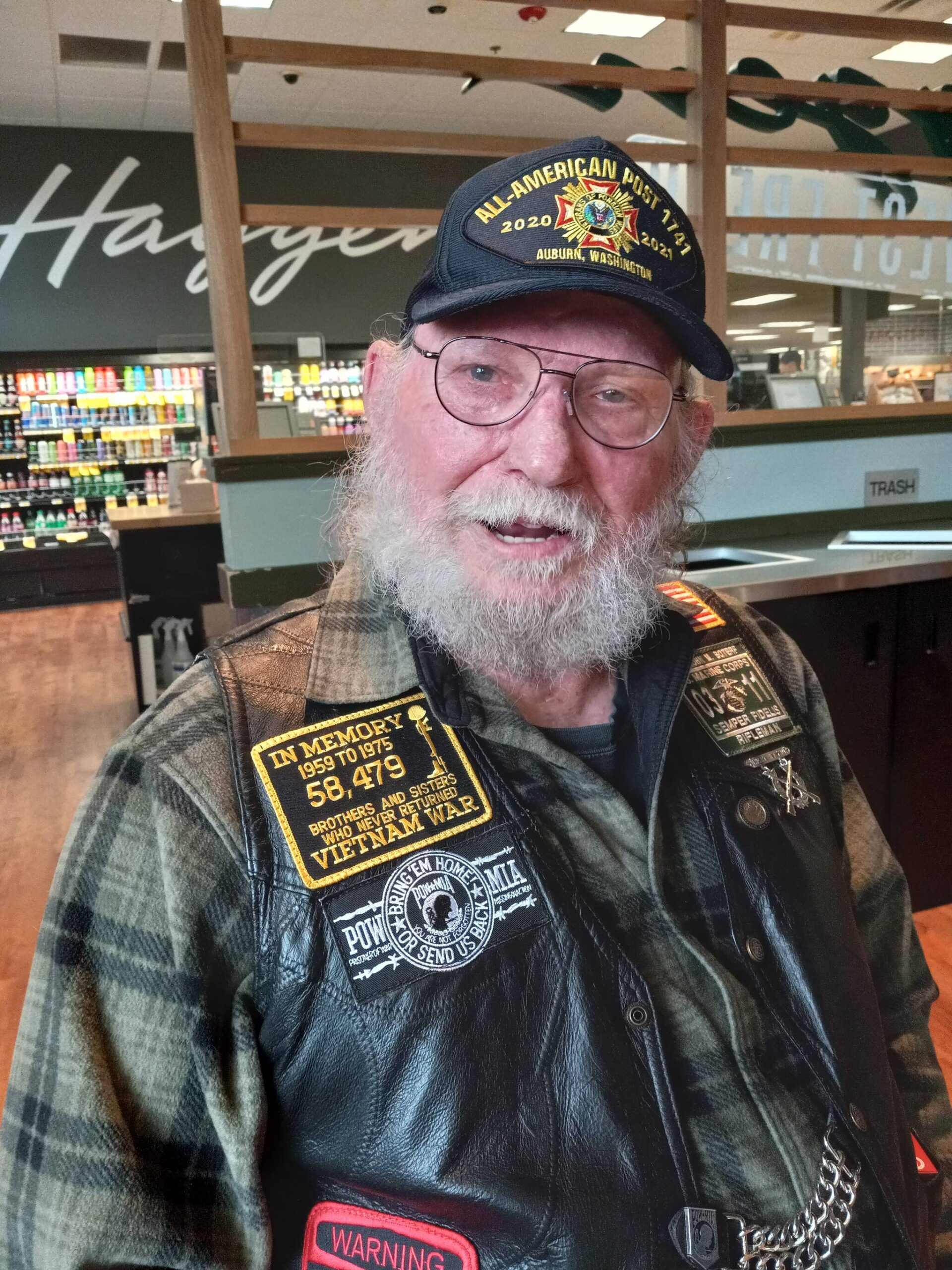John Boterf was a 19-year-old military brat, headed for all the wrong places in life, on that afternoon when he and a buddy entered the nearest US Marine recruitment office in their hometown in California.
His friend had hoped to enlist but could not because he was on parole at the time from the California Youth Authority, so Boterf grabbed the enlistment papers.
Boterf’s father, a marine himself, drove his son to the recruiter’s office days later and asked the man there if he had received the paperwork.
“Yeah, and I’m processing it now, that’s my turd,” the recruiter said, referring to Boterf.
“That was one of the nice things they called us,” Boterf said with a smile. “We were at the bottom of the barrel.”
Within days, Boterf was in boot camp in San Diego.
“They don’t make Marine boot camp to be pleasant. You learn the alphabet, and the first letter you learn is D for discipline. If you don’t have discipline when you go there, you will have it when you leave.
“I entered boot camp at one end at 145 pounds sopping wet and 12 weeks later walked out the other end at 176 pounds. I would have dared you to find any body-fat on me,” Boterf said.
So it was, that, never having been under fire and knowing nothing about Vietnam, in the fall of 1968 Boterf found himself on his way to that country.
There was no school in the combat zone where some sympathetic person would take a rookie by the hand, lead him and teach him what he’d need to know, Boterf said. That’s not how it works. In the eyes of more experienced Marines, newbies like Boterf were useless, and because they were useless, they were also expendable.
“If your platoon or squad drew an ambush that first night,” Boterf said, “you would go out on an ambush, or the next day you’d be on patrol and walk point in front of everyone else. You’re the first person that’s going to find a booby trap, you’re the first one who is going to set off an ambush.”
“It is trial by fire. You will learn, or you will die.”
Today a retired long-haul trucker, Boterf is an active member of VFW Post 1741 in Auburn. He will take part in Auburn’s annual Veterans Day Parade and observance on Saturday morning and early afternoon.
His legs aren’t as willing as they used to be, said Boterf, so he expects to be on a bus “thanking everyone for showing up,” and doubtless remembering friends who did not return or who have by now passed on.
“Veterans Day to me is a thanks to the men who served and had the privilege to be in it,” Boterf said.
Boterf served in Vietnam with the First Battalion Ninth Marines from November 1968 to November 1972, or, as he calls it “the best” unit. Always in the thick of the fight, it famous for the numbers of its dead and wounded.
On Boterf’s first patrol duty, he walked point.
“As long as we were in the jungle, I was okay,” Boterf said, “The main thing is, you’ve got every word of your trainers going through your mind — should I do this, not do that. I was okay until we went through this village.”
The village was filled with farmers, and every one of them it seemed carried a sickle.
“If they’d wanted, they could have sliced us in half with them. Made it through that, and thought, well, that wasn’t so bad,” Boterf said.
He proved to be a quick study.
“I can’t decide whether to call it ‘routine,’ or ‘instinct.’ But you are going along, and you learn to see certain things, while this person over there is going to see something else. But you are more attuned to see something out of the ordinary, something that doesn’t fit, that is out of place,” Boterf said.
For instance, he explained, walking along a clear, heavily travelled path, when you see an odd square in the middle of your path, concealed with leaves, you learn it could be a punji pit, waiting to impale the unwary on sharpened sticks.
“As point-man, there is one of two things you’re going to do: you’re gonna be the first one killed, or you’re going to walk through it, and everyone else is going to be behind you,” Boterf said.
Somehow or other, he said, a soldier just picks up what he needs to know.
“You watch the guy who’s been there a week or a month longer than you, and you see what he does, you imitate him, Boterf said.
In 1969 a grenade exploded without warning in the hands of an American soldier in the A Shau Valley, ending Boterf’s first tour of duty. Yet he refused all opportunities to return stateside and continued in Vietnam until 1975.
“Young men grow old very quickly,” Boterf said.


